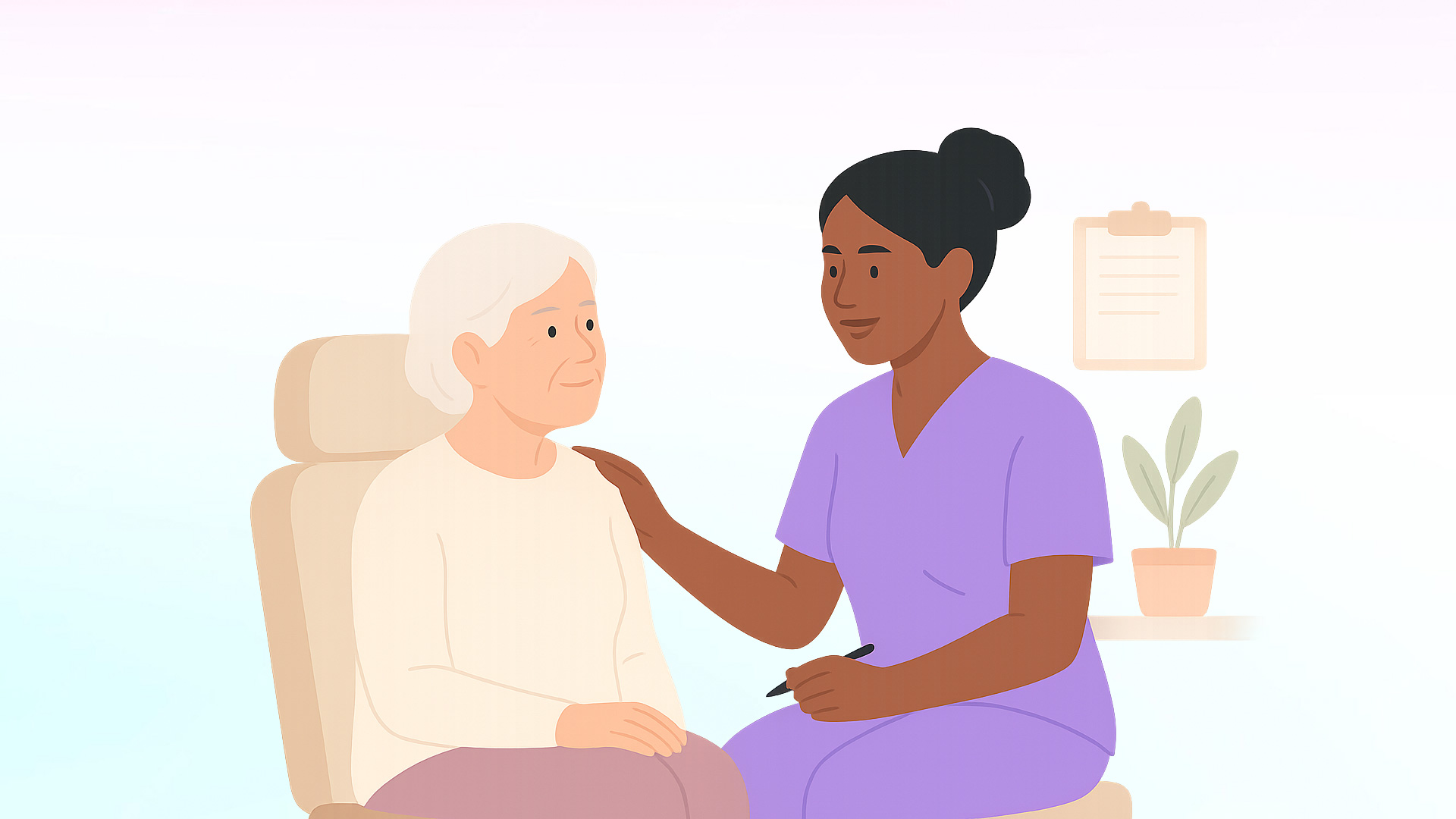The average adult gerontology nurse practitioner salary in the U.S. ranges from $90,000 to $120,000 per year, with top earners in states like Washington exceeding $150,000 annually. As demand for gerontology nurse practitioners (AGNPs) grows alongside the aging population, AGNP salary potential continues to rise across diverse healthcare settings.
TL;DR: Adult Gerontology Nurse Practitioner Salary: Cashing In on America's Aging Population
- AGNPs earn big—and it's growing. The average adult gerontology nurse practitioner salary in 2025 is $118,644, with top states like Washington paying over $150,000.
- Location is key. Where you work has a major impact on salary—states with full practice authority and aging populations pay significantly more.
- Experience, credentials, and setting matter. AGNP salaries rise with clinical experience, certifications, and work in acute care or private practice settings.
- America’s aging population means unlimited demand. By 2034, adults 65+ will outnumber children—AGNPs are becoming essential across all healthcare systems.
- AGNPs are the future of advanced nursing. With unmatched versatility, clinical depth, and long-term career stability, this role is one of the smartest paths in modern nursing.
What Every Nursing Student Should Know About AGNP Salary and Career Outlook
For registered nurses exploring the most strategic career paths in advanced practice, the adult gerontology nurse practitioner (AGNP) role stands out—especially when it comes to salary, job security, and long-term relevance. AGNPs are uniquely trained to provide comprehensive care to older adults, managing everything from chronic illnesses and preventive care to complex treatment plans.
And there's a good reason why adult gerontology nurse practitioner salary conversations are heating up. The U.S. population is rapidly aging: By 2034, adults over 65 will outnumber children under 18 for the first time in history.
This means AGNPs will be on the front lines of geriatric clinical management in primary care settings, community health centers, and beyond—earning salaries that reflect their critical role in modern healthcare systems.
AGNP Salary Snapshot: What You Can Expect to Earn as a Gerontology Nurse Practitioner
The adult gerontology nurse practitioner salary in the U.S. reflects both the rising demand for elder care and the advanced training required to manage complex chronic conditions. According to recent reports:
- The average AGNP salary is $118,644 per year, based on current ZipRecruiter data (as of June 2025).
- Data from PayScale shows median earnings between $107,000 and $130,000 annually, depending on region and experience level.
In high-demand states like Washington and New York, top earners can pull in over $150,000 annually, highlighting how geographic location and healthcare policy directly influence adult gerontology nurse practitioner salary levels.
If you're actively job hunting in one of these top-paying regions, check out NPHire, the only job platform built exclusively for nurse practitioners. We specialize in early-access roles, transparent salary listings, and opportunities designed for AGNPs like you.
Many factors influence how much AGNPs earn—from experience level and certification to the type of employer—but location might just be the most powerful one. Whether you’re in a coastal metro or a quiet Midwestern town, your ZIP code could mean tens of thousands in difference.
Let’s break down the highest-paying states for adult gerontology nurse practitioners.
Top-Paying States for Adult Gerontology Nurse Practitioner Salary in 2025
If you’re comparing job offers or dreaming of relocating where you practice as a gerontology nurse practitioner (AGNP) can have a major impact on your earnings. According to ZipRecruiter’s most recent data, here are the top-paying states for AGNPs in 2025:
- Washington: $152,186
- District of Columbia: $151,840
- New York: $147,004
- Massachusetts: $146,747
- Alaska: $144,708
- Vermont: $142,868
- North Dakota: $142,173
- Oregon: $142,066
- Colorado: $141,291
- Hawaii: $139,604
These high-earning regions often share key traits: greater autonomy for nurse practitioners, a growing population of older adults, and increased reliance on community health centers and AGNP-led primary care models.
On the flip side, states like Florida ($100,413) and West Virginia ($104,024), despite having large senior populations, land at the lower end of the salary scale. The reasons? Tighter NP scope-of-practice regulations, lower healthcare reimbursement rates, and sometimes, a surplus of providers in saturated markets.
This doesn’t mean you have to move to the Pacific Northwest to make a great living as an AGNP. But it does mean that location should be a serious part of your salary strategy, especially if you’re flexible in where you settle after graduation.
Still, geography is just one factor in the equation. Let’s talk about what else drives your earning power as an adult gerontology nurse practitioner.
What Affects Your AGNP Salary Beyond Location
Sure, your state matters but it’s far from the only factor that influences your adult gerontology nurse practitioner salary.
As with any role in advanced nursing practice, your earnings also depend on your experience, certifications, work environment, and even how well you negotiate. Whether you’re fresh out of an accredited program or mapping out long-term career goals, here’s what really drives your income as an AGNP.
1. Experience Level and Career Progression
In the world of adult gerontology nurse practitioners, salary often reflects your years in the field.
- A newly certified AGNP armed with RN licensure, clinical hours, and a fresh certification exam pass might start around $90,000 to $105,000 annually.
- With 3–5 years of hands-on clinical management and growing expertise in treating chronic conditions, the median climbs past $120,000.
- Senior AGNPs in leadership, education, or specialty roles can earn $130,000 to $145,000+, especially in large healthcare systems.
Each year of experience adds not just knowledge—but negotiating power and access to broader practice areas.
2. Workplace Setting and Patient Population
Not all healthcare settings pay the same. Where you choose to treat patients matters big time.
- Acute care hospitals and private practice settings tend to offer higher pay than outpatient primary care settings.
- Community health centers may offer lower base pay, but they often come with loan forgiveness, flexible hours, and high-impact family focused healthcare services.
- Home health and geriatric care programs are increasingly turning to AGNPs to manage complex chronic illnesses and design tailored treatment plans.
You’ll also see salary shifts depending on your patient load, whether you're focused on disease prevention, older adults, or high-acuity health conditions.
3. Certifications and Subspecialties
Extra credentials can boost both your AGNP salary and your role flexibility.
- Certifications in palliative care, women’s health, wound care, or mental health (hello dual certs!) widen your clinical scope.
- Consider adding special skills in advanced health assessment, diagnostic tests, or chronic disease coordination.
Bonus? Specialized AGNPs often get first dibs on unique career paths in education, research, or policy.
4. Negotiation Skills
This one's huge, especially for new gerontology nurse practitioner AGNPs entering the job market. Don’t let “new grad” energy keep you from negotiating.
- Know the median annual salary in your state.
- Bring data, show confidence, and highlight your educational requirements, clinical hours, and your passion for improving care for older patients.
- Be ready to explain how your training in comprehensive care and family focused care makes you an asset to their team.
So now that we’ve covered the "what," let’s zoom out and look at the bigger picture: what does the long-term career outlook look like for adult gerontology NPs?
Career Outlook for Adult Gerontology Nurse Practitioners: Is AGNP the Future of Nursing?
If you're an NP student choosing a specialty, this isn't just about where healthcare is now, it's about where it's going. And right now, adult gerontology nurse practitioners (AGNPs) are positioned to lead that future.
The U.S. Is Getting Older—Fast
Here’s the demographic curveball that’s changing everything:
- The median age in the U.S. rose from 30 in 1980 to 38.9 in 2022—that’s nearly a full decade older in just one generation.
- By 2034, the number of adults 65 and older (77 million) will outnumber children under 18 (76.5 million)—a first in U.S. history.
- Over the next 30 years, this 65+ age group will expand from 17% to 23% of the population.
Translation? Healthcare is being restructured around aging and that means AGNPs aren’t just useful, they’re essential.
Why AGNPs Are Built for the Job Ahead
As older adults live longer and manage more complex chronic illnesses, AGNPs are trained to step in with precision, compassion, and strategy.
Their expertise goes beyond primary care, it's clinical management of the entire aging process. Here’s what AGNPs are designed to do in tomorrow’s healthcare system:
- Coordinate complex care plans: Older patients often see 5+ specialists and take multiple medications. AGNPs provide comprehensive care that keeps treatment aligned, communicates across providers, and reduces hospitalization risk.
- Manage chronic conditions effectively: Conditions like diabetes, heart disease, arthritis, and dementia are rising sharply in aging populations. AGNPs design treatment plans that manage disease while promoting function and independence.
- Deliver holistic, family-focused healthcare services: AGNPs often become trusted figures for multigenerational families, offering continuity, education, and culturally competent care—especially in community health centers and rural areas.
- Lead healthcare initiatives in diverse settings: AGNPs can thrive in primary care clinics, long-term care facilities, hospitals, and increasingly, in telehealth and private practice. Their versatility across workplace settings makes them an asset in under-resourced or rapidly growing communities.
Where This Career Can Take You
The AGNP path isn’t just about salary (though we’ve covered how strong that is). It’s about building a future where your clinical expertise stays in demand and your options stay open.
AGNPs are thriving in:
- Leadership roles in health systems helping shape healthcare policy and supervising interprofessional teams
- Education, mentoring NP students and shaping the next wave of collegiate nursing education
- Entrepreneurship, launching senior-focused private practices, home visit models, or group care clinics
- Policy and advocacy, working with organizations like the American Association of Nurse Practitioners to improve care standards for aging populations
It’s not a question of whether AGNPs are needed. It’s a matter of whether you’re ready to step into a role that’s already defining the future of healthcare.
AGNPs Are the Future And Your Future Deserves Real Support
You’ve seen the data: America’s population is aging faster than ever, and with it, the demand for adult gerontology nurse practitioners is exploding.
From chronic illness management to preventive care for aging adults, AGNPs are becoming the backbone of a healthcare system built around longevity, complexity, and compassionate care.
But the path to becoming a confident, competent AGNP doesn’t end with classroom theory or board exam prep. I
It's forged in real-world experience rotations where you learn how to manage a full patient panel, communicate with interdisciplinary teams, and deliver nuanced care to older adults with diverse and often overlapping health needs.
And this is exactly where most NP students hit a wall.
Finding clinical placements in adult gerontology, especially those that meet collegiate nursing education standards, feels like a full-time job on its own.
Cold calling clinics. Waiting weeks for responses. Begging to shadow. Watching your graduation date slip because no one can “take a student right now.”
And the truth is that you shouldn’t have to beg for your future and that’s where NPHub comes in.
NPHub is the clinical placement platform built exclusively for NP students, and yes, that includes those pursuing adult gerontology, primary care, and chronic illness rotations.
Unlike generic directories or outdated placement services, NPHub gives you:
- Access to the largest vetted network of preceptors across all 50 states, many specializing in geriatric care, chronic disease management, and family-focused healthcare services
- Real-time availability so you can stop guessing and start planning
- Guaranteed matches, not “maybe” or “waitlist” options
- Placement specialists who walk you through every step, from matching to documentation to preceptor communication
- A user dashboard that tracks everything, so no more digging through emails or losing paperwork
We’ve helped over 10,000 NP students, many just like you, secure rotations in high-demand specialties with less stress and more support.
If you're ready to specialize in adult gerontology and deliver care that improves the lives of older patients, NPHub is here to make sure you don’t just finish your program, you thrive in it.
Secure your AGNP clinicals with confidence. Visit NPHub.com and get matched today. No ghosting. No guessing. Just guaranteed progress.
Frequently Asked Questions Adult Gerontology Nurse Practitioner Salary and Career Path
1. What is the average adult gerontology nurse practitioner salary in 2025?
As of June 2025, the average AGNP salary is approximately $118,644 per year, but this can vary significantly by state, experience, and healthcare setting. Top earners in states like Washington and New York report salaries over $150,000 annually.
2. How does AGNP salary compare to family nurse practitioners (FNPs)?
While both roles are well-compensated, adult gerontology nurse practitioners may earn slightly more in acute care or specialized geriatric settings, whereas family nurse practitioners often earn more in outpatient clinics or urgent care. Salary differences also depend on scope of practice and location.
3. What settings offer the highest salary for AGNPs?
AGNPs earn the most in acute care hospitals, skilled nursing facilities, and private practice settings. Salaries tend to be lower in community health centers, though these roles often come with loan repayment incentives and flexible schedules.
4. Can new grad AGNPs earn over $100K?
Yes. In high-paying states and in-demand specialties like chronic disease management or geriatric health, even new graduates can start with salaries between $100,000 and $120,000, especially if they’ve completed rotations in complex care environments.
5. What certifications or additional training can boost AGNP salary?
Certifications in areas like palliative care, women’s health, mental health, or wound care can significantly raise your adult gerontology nurse practitioner salary. Skills in advanced health assessment and interpreting diagnostic tests are also highly valued.
6. Is there a difference between AGPCNP and AGACNP in terms of salary and role?
Yes. AGPCNPs work mostly in primary care settings and focus on preventive and chronic care, while AGACNPs work in hospitals and manage acute, often critical, conditions. AGACNPs tend to earn more due to the higher acuity and 24/7 shift structure.
7. What are the educational requirements to become an AGNP?
To become an AGNP, you must complete an accredited program—either at the master’s or DNP level—followed by passing a national certification exam. Most programs include 500–700 clinical hours, often in multiple healthcare settings focusing on adult and elderly patients.
8. Is adult gerontology a good long-term career path for nurse practitioners?
Absolutely. With the U.S. population aging rapidly, gerontology nurse practitioners will be critical to the future of healthcare. The field offers a broad range of roles, strong salary growth, and the chance to lead in areas like healthcare policy, education, or private practice.
Key Terms
- Adult Gerontology Nurse Practitioner (AGNP)
A licensed nurse practitioner who specializes in providing care for adolescent, adult, and elderly patients. AGNPs treat acute and chronic illnesses, manage treatment plans, and offer preventive care in a variety of healthcare settings. - Adult Gerontology Nurse Practitioner Salary
The total annual compensation earned by AGNPs. As of 2025, the median annual salary is approximately $118,644, with top earners exceeding $150,000, depending on location, experience, and clinical setting. - AGNP Programs
Accredited educational programs that prepare nurses for advanced nursing practice in adult-gerontology. These programs include coursework in advanced health assessment, diagnostic tests, disease prevention, and typically require 500–700 clinical hours. - Primary Care Setting
A workplace setting where AGNPs provide routine, longitudinal care to patients. This includes health promotion, chronic disease management, and coordination of services in clinics, community health centers, and outpatient practices. - Acute Care
A fast-paced healthcare setting where AGNPs treat patients with severe, short-term conditions. AGACNPs often work in hospitals, emergency departments, or ICUs, managing complex, unstable conditions. - Clinical Hours
The supervised, hands-on training required during AGNP education. These hours are completed in real healthcare settings and are essential for graduation, licensure, and preparing to treat patients with complex needs. - Chronic Conditions
Long-term health conditions such as diabetes, hypertension, arthritis, and COPD. AGNPs specialize in managing these issues in older adults, designing treatment plans that emphasize function, independence, and healthy lifestyles. - National Certification Exam
The final licensure step for AGNPs, this standardized test confirms clinical competence and eligibility to practice. Administered after completion of an accredited program, and required for RN licensure as a nurse practitioner.
About the author
- NPHub Staff
At NPHub, we live and breathe clinical placements. Our team is made up of nurse practitioners, clinical coordinators, placement advisors, and former students who’ve been through the process themselves. We work directly with NP students across the country to help them secure high-quality preceptorships and graduate on time with confidence. - Last updated
Jun 16, 2025 - Fact-checked by
NPHub Clinical Placement Experts & Student Support Team - Sources and references
- https://www.ziprecruiter.com/Salaries/Geriatric-Nurse-Practitioner-Salary#:~:text=As%20of%20Jun%208%2C%202025,%2Fweek%20or%20%249%2C887%2Fmonth.
- https://www.payscale.com/research/US/Job=Adult-Gerontology_Nurse_Practitioner_(AGNP)/Salary
- https://www.ziprecruiter.com/Salaries/What-Is-the-Average-Gerontology-Nurse-Practitioner-Salary-by-State
- https://johnsoncenter.org/blog/americas-population-is-rapidly-aging-can-philanthropy-keep-up/
- https://www.nursepractitioneronline.com/specialties/adult-gerontology-nurse-practitioner/
- https://www.nphub.com/testimonials
Find a preceptor who cares with NPHub
Book a rotation.webp)








.webp)


.webp)



.webp)